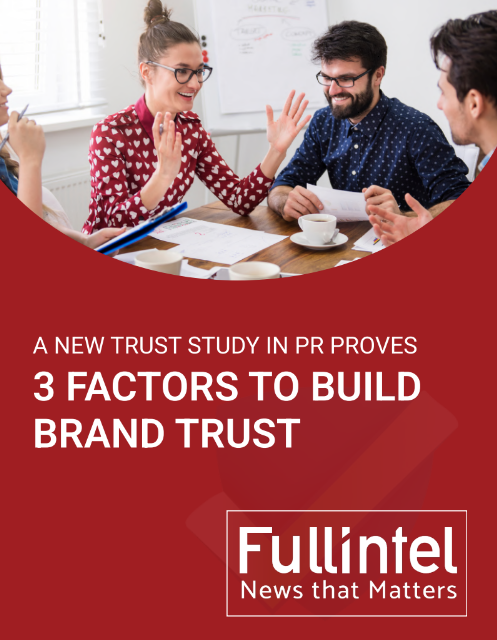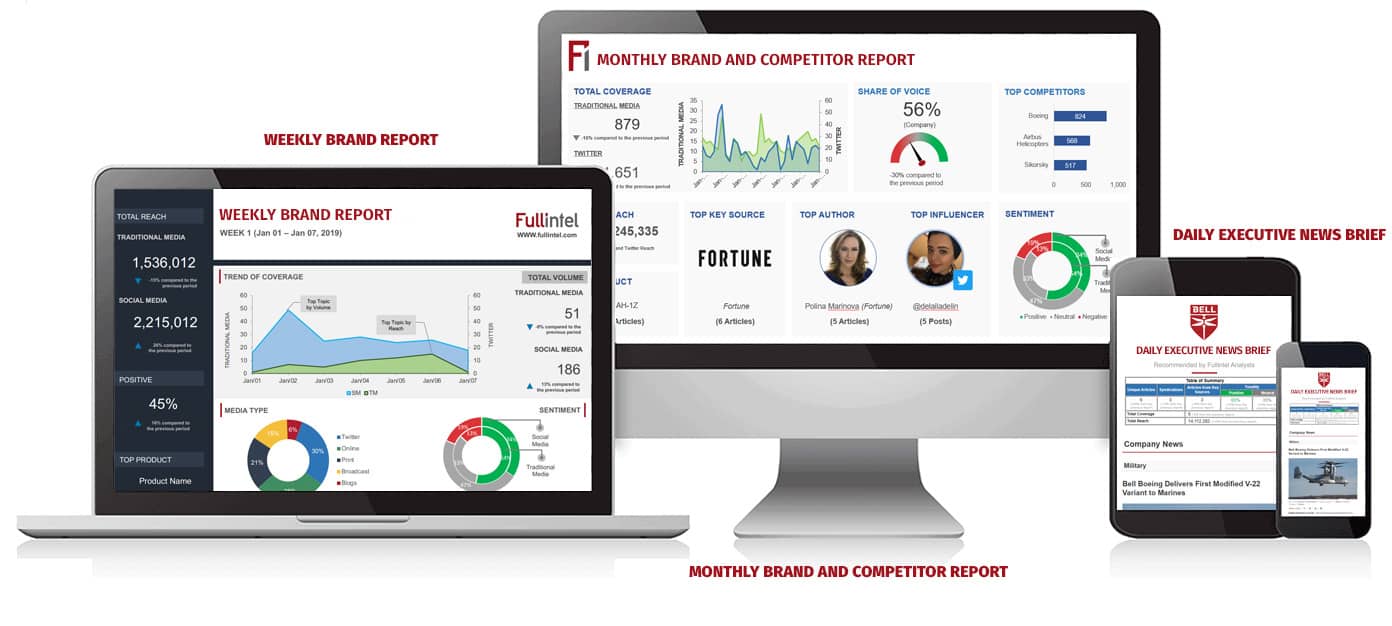Fullintel’s Research-Based Trust Score
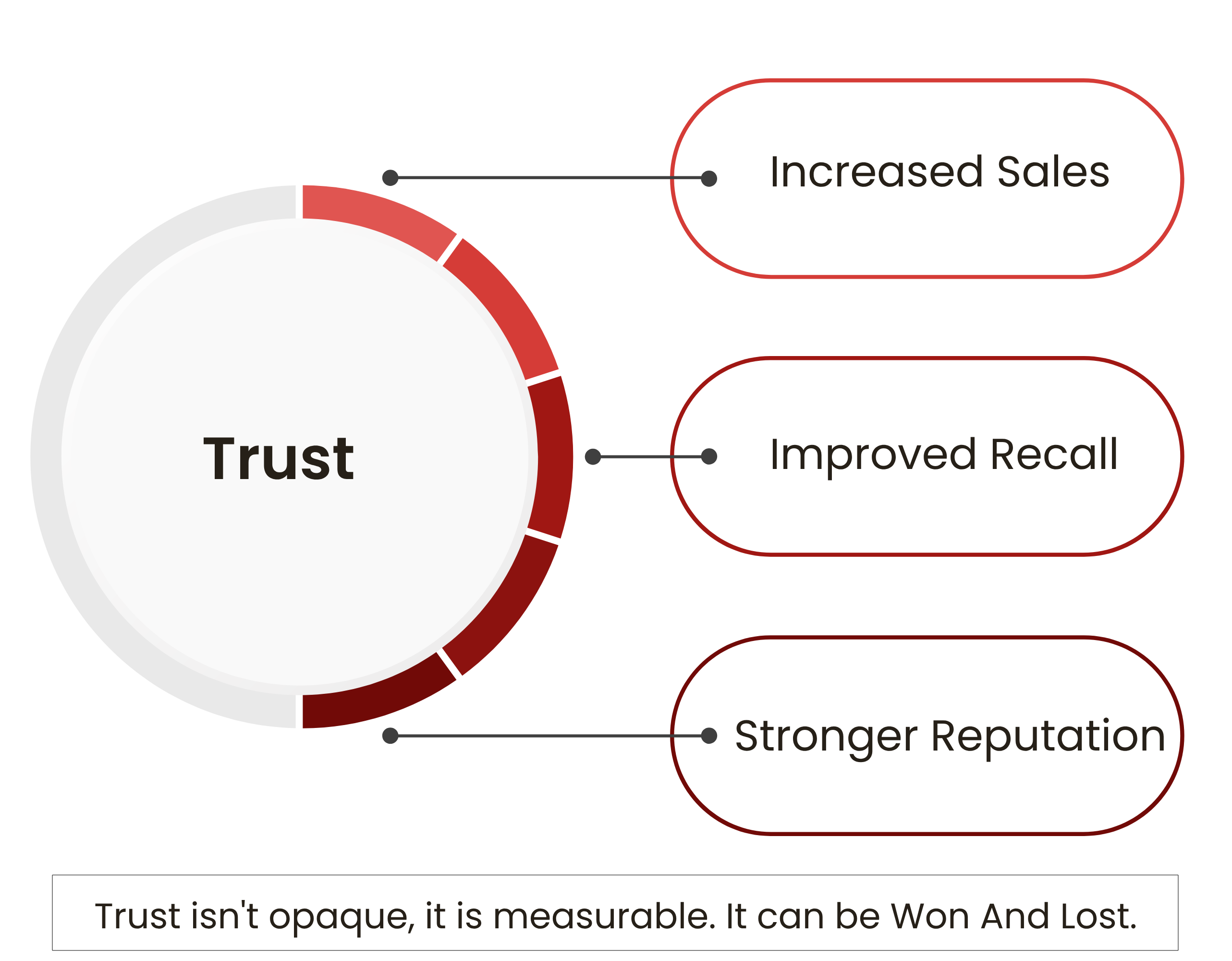
Fullintel’s proprietary Trust Score capitalizes on our award-winning trust research to demonstrate how likely coverage is to build trust in a brand based on three tested trust factors – ability, integrity, and benevolence allowing PR and communications teams to better measure trust and show value.
All articles given Fullintel’s Trust Score are curated and scored by human analysts to ensure accurate and insightful analysis, and are part of a full suite of media monitoring and intelligence services available 24-7-365 to support global clients.
Fullintel researchers have tested trust factors several times in multiple scenarios and can make recommendations on how brands can build trust by adhering to the three trust principles, creating trustworthy content, and measuring that content more effectively.
Trust has traditionally been a significant factor in crisis communications measures of reputation. Additionally, according to the 2022 Edelman Trust Barometer trust has declined toward government and media and increased toward businesses and NGOs.
Clearly, trust matters a great deal to consumers of all stripes. Businesses currently have a unique opportunity to build lasting trust with their audiences. And while a loss of trust can be devastating for consumer brands, those brands can use research-based measurement techniques to determine root causes and mitigate them.
“Brands need to understand why trust was lost, which is why understanding the distinct dimensions of trust is so important,” explains UConn assistant professor of public relations and research co-author Dr. Tyler Page. “Addressing a product failure is different from addressing corporate malfeasance or value misalignment with stakeholders. Distinguishing between these trust types and seeing how they operate in different contexts is an important first step.”
A 2022 PwC study on trust concluded that:
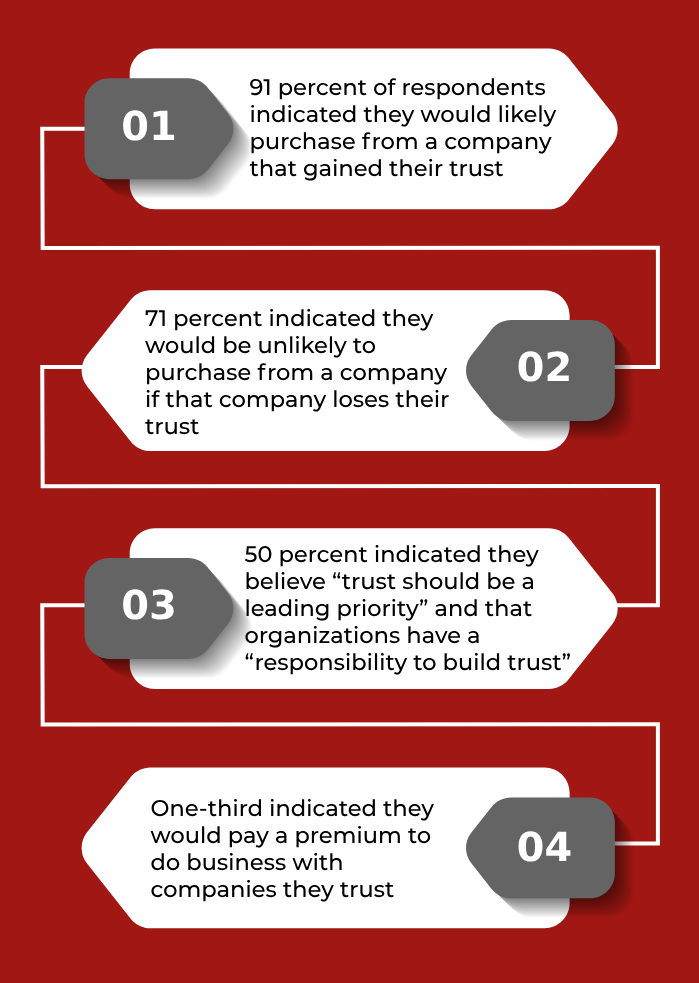

A Customized Trust Score
Research shows different trust factors influence different outcomes depending on your industry, which is why Fullintel’s Trust Score weights factors according to your industry and primary goal.

Simple Yet Powerful
Fullintel’s Trust Score is represented on a scale from 0 to 10 – the higher the number, the more likely the brand is to be trusted.

Based on Industry-Leading Research
Fullintel partnered with the University of Connecticut (UConn) on a series of mixed-method research studies on the importance of trust for consumer, pharmaceutical, and other brands.

Combine With Other Advanced Metrics
Deploying the Trust Score alongside Fullintel’s Media Impact Score (MIS) can be an accurate proxy for expensive survey research, helping PR teams navigate the best route to brand trust.
A History Of Trust Research
The “distinct dimensions” of trust mentioned by Dr. Page were initially articulated back in 1995, when researchers first identified three distinct dimensions of trustworthiness:
- Ability: Competence within a specific domain and the effectiveness or quality of the company’s products, along with relevant expertise, business sense, and success. “Ability is that group of skills, competencies, and characteristics that enable a party to have influence within some specific domain,” according to Mayer et al.
- Benevolence: A desire to take care of the trustor that affects the company’s core audience positively. “Benevolence is the extent to which a trustee is believed to want to do good to the trustor, aside from an egocentric profit motive,” say the researchers.
- Integrity: Adherence to an acceptable set of principles including transparency, disclosure, legal issues, but also purpose work that isn’t necessarily relevant to the company’s core audience. Integrity “involves the trustor’s perception that the trustee adheres to a set of principles that the trustor finds acceptable.”
Plenty of additional studies directly link trust to outcomes– either positive or negative. Multiple studies have shown trust influences the purchase intentions of consumers both directly and indirectly, and helps build customer loyalty over the long term.
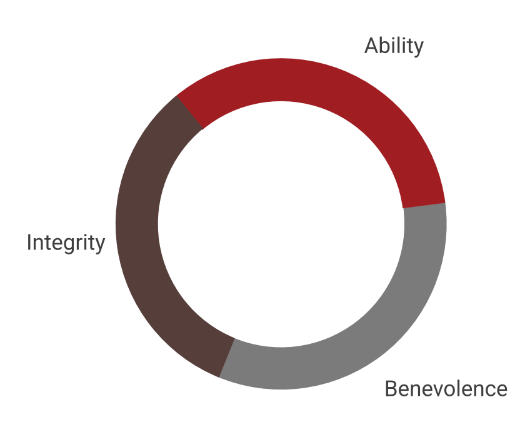
Fullintel Trust Research: The Findings
But the question remains: Which of these three trust factors is most relevant to your brand and business goals?
The answer, it turns out, is all of them. But which trust factor you should focus on most depends largely on your industry and ultimate communications goal, according to the research conducted by UConn’s Dr. Page and Fullintel Head of Insights Angela Dwyer.
Pharmaceutical Trust Study
The three trust factors were tested in relation to pharma companies to understand how the former impacts reputation and consumer intent. The researchers discovered that while all three factors are significant in building trust for pharma brands, certain elements correspond best with specific outcomes:
- Benevolence (as perceived by a brand’s audience), along with integrity to a somewhat lesser degree,
was best for building pharma brand reputation - Ability was most suited for driving action such as medication purchases
- Integrity correlated strongly with word of mouth: A company perceived to have a lack of integrity loses trust, while a foundation of integrity builds trust and can even help protect a pharma brand during a PR or other crisis
The study showed that benevolence has the largest effect on reputation (t = 11.878, p < .001, β = .464). It also showed that purpose work directly affecting a company’s audience drives reputation more than integrity (t = 4.015, p < .001, β = .177) or ability (t = 4.950, p < .001, β = .170)
Want to build your reputation as a pharma brand? Focus more on that purpose work directly affects your company’s audience. Want to increase uptake in a particular product? According to the results of our study, you should focus on ability.
“People are so loyal to consumer brands. But when it comes to medical treatments and therapies, loyalty goes out the window. It comes down to what is most effective,” says Associate Professor of the Practice, Strategic Communication at Boston University’s College of Communication,Monique Kelley “Personally, I would choose the best product to treat an illness – the ability factor – even if it’s not from the brand with the best reputation.”
Consumer Trust Study
The consumer trust study similarly examined trust factors in relation to three major consumer brands, confirming that trust for consumer brands has a large effect on reputation and a smaller effect on purchase intentions. However, as with pharma, different attributes of trustworthiness have a greater effect on different outcomes:
- Organizations seeking a better reputation should emphasize ability
- Organizations seeking increased purchases should emphasize benevolence but also ability-related elements such as quality, variety, and affordability of products
- Organizations concerned about word of mouth should emphasize integrity and ability, defined as developing key skills and following acceptable principles, respectively
A multiple regression found that, taken together, the three attributes of trustworthiness significantly predicted negative word of mouth intentions (F (3, 1061) = 600.249, p < .001, R2 = .630). It also found that the three attributes of trustworthiness significantly predicted past purchases (F (3, 1061) = 28.585, p < .001, R2 = .075) and future purchases (F (3, 1061) = 41.033, p < .001, R2 = .104).
The study further found that trust is built slowly, over a long period of time, and that it can pay big dividends – but also can be lost in an instant due to a lack of integrity.
“Communication and actions that establish the virtuousness of an organization and its actions before, during, and after a crisis will have a very large effect on post-crisis reputation, which is strongly related to trust,” adds Dr. Page. “Virtuousness is established by caring for others, acting fairly, respecting authority, being loyal, and respecting societal norms.”
Trust For Consumer & Pharmaceutical Brands: What’s The Difference?
While all three trust factors are important, which ones PR pros should focus on most depends on their industry and business goal. For example, consumer brands trying to build reputation should focus on ability, while those attempting to drive sales should look more at benevolence (see table below).
| Consumer – Reputation | Consumer – Sales | Pharmaceuticals – Reputation | Pharmaceuticals – Sales |
|---|---|---|---|
| Ability | Benevolence | Benevolence | Ability |
| Integrity | Ability | Ability | Integrity |
| Benevolence | Integrity | Integrity | Benevolence |
Both Fullintel mixed-method studies (pharma and consumer) included a nationally representative survey of around 400 respondents and a deep content analysis. Both examined the trustworthiness of a handful of prominent brands in each business vertical.
Fullintel continues to explore additional business verticals and sectors in ongoing trust factor research.
To learn more about how you can apply Fullintel’s award-winning trust research and new Trust Score to your media intelligence activities.
